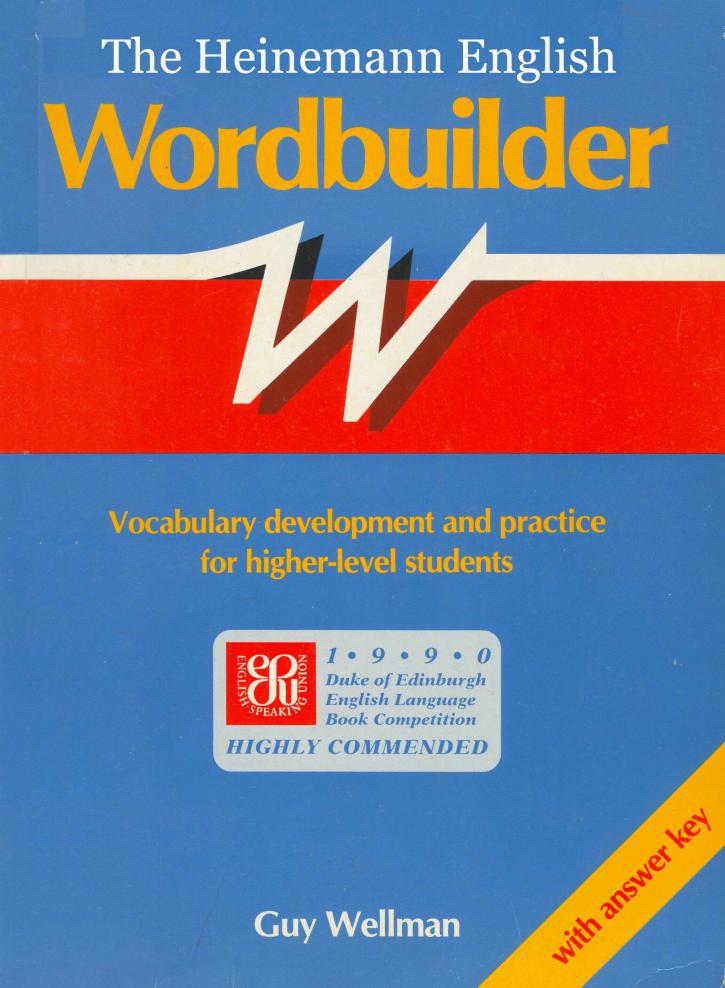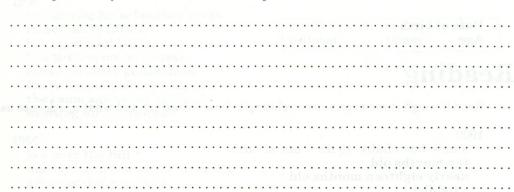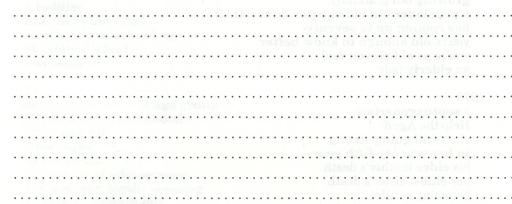
- •Contents
- •Introduction
- •Names
- •Family relationships
- •Marital status
- •Location
- •Build
- •From the neck up
- •From shoulder to fingertips
- •From the bottom down
- •Inside and outside the torso
- •The senses
- •Character and personality
- •Attitudes and beliefs
- •Moods
- •Expressing oneself
- •Reacting to events
- •Sounds people make
- •Actions and activities
- •The universe
- •Physical geography
- •The plant world
- •The animal world
- •Food and drink
- •Buildings and rooms
- •Furniture and household
- •Vehicles
- •Clothes
- •Size, quantity, dimensions and measurements
- •Shapes
- •Substances, materials and textures
- •Colours
- •The condition things are in
- •What things do
- •Noises things make
- •Births, marriages and deaths
- •Work
- •Health and illness
- •Sport and games
- •Entertainment
- •Games and hobbies
- •Music and the Arts
- •Cooking, eating and drinking
- •Travelling
- •Business, industry and agriculture
- •Law and order, crime and punishment
- •Quality
- •Time
- •Rise and fall
- •Probability, necessity and free will
- •Cause and effect
- •Index

The Heinemann English
Wordbuilder
The Heinemann English
Wordbuilder
Guy Wellman
HEINEMANN
Heinemann English Language Teaching
A division of Reed Educational and Professional Publishing Limited Halley Court, Jordan Hill, Oxford OX2 8EJ
OXFORD MADRID FLORENCE ATHENS PRAGUE
SAO PAULO MEXICO CITY CHICAGO PORTSMOUTH (NH) TOKYO SINGAPORE KUALA LUMPUR MELBOURNE AUCKLAND JOHANNESBURG IBADAN GABORONE
ISBN 0 435 28556 4
First published 1989 in association with ELA
© Heinemann International 1992
Design by Arc Design
Illustrations by Laura Potter and Richard Wileman
Printed in Great Britain by
The Bath Press, Avon
96 97 98 10 9 8
Contents
Introduction |
|
|
Names |
|
8 |
Age |
|
10 |
Family relationships |
|
13 |
Marital status |
|
15 |
Countries, Nationalities |
17 |
|
Location |
|
21 |
Build |
|
25 |
From the neck up |
|
26 |
From shoulder to |
fingertips |
29 |
From the bottom down |
31 |
|
Inside and outside the torso |
32 |
|
Compound adjectives using |
|
|
parts of the body |
|
34 |
The senses |
|
36 |
Character and personality |
39 |
|
Attitudes and beliefs |
|
43 |
Thinking, wanting and knowing |
46 |
|
Moods |
|
50 |
Attitudes and relationships |
53 |
|
Expressing oneself |
|
56 |
Reacting to events |
|
62 |
Sounds people make |
|
65 |
Gesture, mannerism and |
|
|
body language |
|
67 |
Posture and movement |
71 |
|
Actions and activities |
|
74 |
The universe |
|
77 |
Physical geography |
|
78 |
The plant world |
|
80 |
The animal world |
|
82 |
Food and drink |
|
87 |
Buildings and rooms |
|
91 |
Furniture and household |
94 |
|
Vehicles |
|
101 |
Clothes |
|
107 |
Size, quantity, dimensions |
|
and measurements |
110 |
Shapes |
114 |
Substances, materials and |
|
textures |
116 |
Colours |
119 |
The condition things |
|
are in |
122 |
Parts and components |
125 |
What things do |
127 |
Noises things make |
132 |
Births, marriages and |
|
deaths |
134 |
Work |
140 |
Earning and spending |
|
money |
146 |
Health and illness |
149 |
Sport and games |
154 |
Entertainment |
159 |
Games and hobbies |
163 |
Music and the Arts |
168 |
Cooking, eating and |
|
drinking |
173 |
Travelling |
178 |
Business, industry and |
|
agriculture |
181 |
Law and order, crime and |
|
punishment |
185 |
Quality |
188 |
Time |
191 |
Numerals and proportions |
196 |
Rise and fall |
199 |
Normality and regularity |
201 |
Probability, necessity and |
|
free will |
203 |
Cause and effect |
206 |
Index |
208 |
Key |
259 |
Introduction
Why
This book is designed to help the student of English whose only weapons in the battle against vocabulary have, until now, been a dictionary and a dog-eared note-book with lists of unconnected words, approximate translations alongside. I felt a book which would help students to build their active vocabulary, while at the same time helping with the recognition of less common or important words, would be a useful tool with which they could work their way deeper into the language.
Who
The book is designed to be used by a class of students, a couple of friends or an individual working alone. It is particularly useful for students who are not living in an English-speaking country, and so are not exposed to the everyday expressions that are presented and practised in this book.
The level is post-intermediate, which means it should be useful for students who have met the basic structures of English at least once, but have a relatively narrow vocabulary range. It is particularly good practice for users who wish to improve their speaking or writing, or for those who are preparing for a national exam or for the Cambridge First Certificate. Even Cambridge Proficiency exam candidates and other advanced users and students of English will find that there is a lot they can learn in the Heinemann English Wordbuilder.
Because this is a book about language, some of the sections will be most beneficial if the user can argue, experiment and practise with someone else, but users working alone at home can greatly improve and broaden their use of English through the presentation and written practice provided.
What
The Heinemann English Wordbuilder is made up of 60 units. Each unit focusses on one vocabulary area. It starts with a reference section which shows you the words (in bold print) at work, that is to say in context. This is followed by a practice section of exercises and ideas for further written or spoken practice with space for you to add any other expressions you know or meet. The Index at the end of the book contains every word and phrase and so acts as a quick reference guide for you. Some words have a star beside them. You should be careful how you use these. A brief note on each is included in the Key at the back of the book.
You will find there are passages to read, some long, a few quite difficult, and many full to the brim with the target vocabulary. There are often checking exercises after them to make sure the words have 'gone in', that is to say that you have remembered them. There are other exercises, too: matching, gap-filling, defining, ordering, etc. many of which have the answers on the page, which you are asked to cover. The advantage of this is that you can do the exercises again and again if you like, to check how your vocabulary is growing. There are games and quizzes, not really to test your general knowledge but rather to motivate you to study the language under review. (I, personally, would rather be asked to guess - or work out from given data — when, why or in what order certain things happened in Siberia than just read a page of historical facts, for instance. Wouldn't you?)
None of the material is 'authentic' English. You would have to read hundreds of extracts from other sources before you met the thirty or forty words and expressions that you will find grouped in each section here. You should, of course, read widely in addition to this book, to improve your reading skills and to see the vocabulary you have learnt in this book at work.
How
There are three main ways in which you can use the Heinemann English Wordbuilder in class or on your own: by looking up a particular word or expression in the Index and then working on that particular unit; by finding a unit of interest and working through it systematically; by working through all the units one by one.
If you are working alone, and you wish to use the book to increase your vocabulary range, work through at a reasonable pace. Ifyou come across a section which you think is of no importance to you or in which you feel your vocabulary is already very strong, leave it out, perhaps returning to it later. Some parts are easier than others. Never spend too long on one particular section. Treat the book as a cross between a manual and a collection of short stories, not as a novel which you want to read quite quickly from cover to cover. Sometimes refer to it to check a word you're not sure of or need to use; sometimes browse through it and pick a section to read and study, just because it's of interest or perhaps an area of English you have never really considered before. And keep coming back to it, as you would a story you have just enjoyed. Each time you look at a particular section, you will find your vocabulary seems stronger, more refined, more elastic than the time before.
At the end of nearly every unit, there is a Practice section which asks you to incorporate the new and old vocabulary you have studied in a series of speaking or writing activities. They are an important part of the book. There is little point in having thirty thousand words in your head if you are only able to call up about five hundred when you find yourself in a particular situation. The Practice sections will help you to start using the vocabulary more or less automatically and without too much hesitation. These sections will also help your speaking and writing skills in general. There is enough here to give Examiners quite a surprise when they read your compositions and hear your answers to Interview questions.
The book contains a lot, we hope most, of the essential vocabulary within the topics covered. However, ifyou are a keen reader of or listener to English, you will occasionally come across items that are not included here. You might like to use the 'Add more words ...' sections in each unit to note these down and to make the Wordbuilder very much your own book.
The Key
At the end of the book, you will find a Key. Here we have given the answers to exercises. Look at the title of the unit you are working on and the page number. Then find these in the Key in order to check your work or find words you didn't know. When the answers depend on general knowledge or are particularly difficult, you will find them in the unit itself. Only refer to the Key when you have done a task. No cheating!
Note that in the practice sections there are some activities suggested which are better done with other students, so that you can speak together in small groups. You have been given the choice between speaking and writing, however, in case you are working on your own.
I hope you enjoy using the book. Writing it made me realise again what an interesting language English is. I hope you'll find you agree.
Guy Wellman

Names
Surname
Forename(s)
Quiz
See how easily and quickly you can find the missing names in the sentences below. The answers are printed after the exercise to help you.
1 William F. Cody (1846 - 1917) was nicknamed . . . .
2Mozart's Christian names were ....
3Queen Elizabeth's youngest son is called . . . .
4The Idlewild Airport in New York was renamed ... after this man's death.
5...'s real name is Richard Starkey.
6A Swedish actress by the name of Greta Gustaffson adopted the screen pseudonym of... .
7Bach's initials, J.S., stand for . . . .
8Mrs Mark Phillips' maiden name was . . . .
9The newest airport in Paris is named after . . . .
10Most Englishmen have pretended at some time in their life to be William Younger, alias . . . .
11Samuel Clemens' pen-name was . . . .
12The stretch of coastland between Toulon in France and Spezia in Italy is known as . . . .
13The tallest building in Paris takes its name from the engineer, ....
14Someone christened Adolph Schickelgruber became world-famous under the name of... .
15The film recognised as the first 'talking picture' was entitled . . . .
16During the seventies a certain Cassius Clay changed his name to . . . .
Answers |
|
|
|
|
|
|
1 Buffalo Bill 2 Wolfgang Amadeus |
3 Prince Edward |
4 |
Kennedy |
|||
International Airport 5 Ringo Starr |
6 |
Greta Garbo |
7 Johann Sebastian |
|||
8 Princess Anne (Windsor) |
9 |
Charles de Gaulle 10 Billy the Kid 11 Mark |
||||
Twain 12 The Riviera |
13 |
(Alexandre Gustave) Eiffel |
14 |
Adolf Hitler-the |
||
best known false name in the world? 15 |
The Jazz Singer |
16 |
Mohammed AH |
|||
Practice
Discuss or write the answers to these questions.
1 What nicknames have you had, if any? Why did people choose them?
2What will you call or have you called your children? Why?
3What's the derivation of the most popular surnames in your country?
4How has the fashion in first names changed in your lifetime?
5How important do you think a good name is for pop and film stars?
6How important is a good name for commercial products like shampoo, soap, cars or cigars? Can you think of any examples of names which have ruined a product's success?

Names
Write a dialogue between a husband and wife as they try to agree on names for their expected child.
Add any other expressions about names as you meet them.

Age
Date of birth |
|
/ / 19 .. |
||||
Age |
|
|
|
|
|
(months) |
(years) |
|
|
||||
Reading
Read through these expressions relating to how old we are and what age does to us.
1900
a new-born baby, 10 Ibs. 3 ozs. at birth ten months old
nearly eighteen months old a toddler
four next birthday coming up to school age at infants' school
a schoolgirl
1910
all those in the 9-11 age group he had a happy childhood
he's a nice kid a teenager in his youth
the agonies of adolescence still a minor, legally speaking a juvenile delinquent
congratulations on your coming of age
1920
you have to be over 21
Miss June Hoskins, aged 22, of35 Stanfield Road in his mid-twenties
in his prime
at the age of 26 she got married
by the age of 26 she had lived in five different countries an adult
agrown-up
1930
don't be so childish he's turned thirty thirtyish
not a youngster any more not as young as she was 36 years of age approaching middle-age the Under 40s Social Club
1940
on the wrong side of forty beginning to look his age an ageing playboy beginning to feel her age I prefer mature people
10
Age
she's still got her girlish sense ofhumour in his late forties
she's older than she looks
1950
still playinghis schoolboytricks in her early fifties
he's aged a lot lately
he's getting on (in years) one of the older generation
I'mtwiceyourage,youngman! the same age as her husband heading for retirement
1960
he's over the hill *
Sunday Excursion for the Over 60s growing old gracefully
a pensioner (an old age pensioner, OAP) he's coming up to seventy
you're old enough to know better you're as old as you feel
an elderly lady
1970
a septuagenerian
Help the Aged
she's still going strong in her seventy-fifth year hiselderbrother'sdeath her eldest sister's death becomingsenile
old age comes to all of us
1980
his eightieth birthday an octogenarian
he's as old as the hills* in her second childhood
he's got one foot in the grave*
he'll soon be pushing up the daisies* she's kicked the bucket*
she's passed away / on
Practice
Discuss or write the answers to these questions.
1How has your relationship with your parents and other members of your family changed as you have grown older?
2At which age would you most like to stop the world for ten years so you could enjoy it? Has that age passed or is it still to come?
3Some people say there are a lot of similarities between childhood and old age. Do you agree?
4Do you think young people are growing up faster these days? If so, give examples.
5Do you agree or partly agree with the saying 'Life begins at forty'?
11

Age
Write on one or more of the following topics.
1 a dialogue between a psychiatrist and a middle-aged man who is worried about his age and getting old.
2 a section of your speech at a public meeting in support of the vote for teenagers.
3the approximate age at which you normally think of or remember these people, as in the examples.
Winston Churchill |
in his midto late sixties |
||
Olga Korbut |
in her early teens, just after adolescence |
||
1 |
James Dean |
5 |
Marilyn Monroe |
2 |
Ronald Reagan |
6 |
Marlon Brando |
3 |
Elvis Presley |
7 |
Joan Collins |
4 |
Mahatma Gandhi |
8 |
Mozart |
Add any other expressions about age as you meet them.
12
